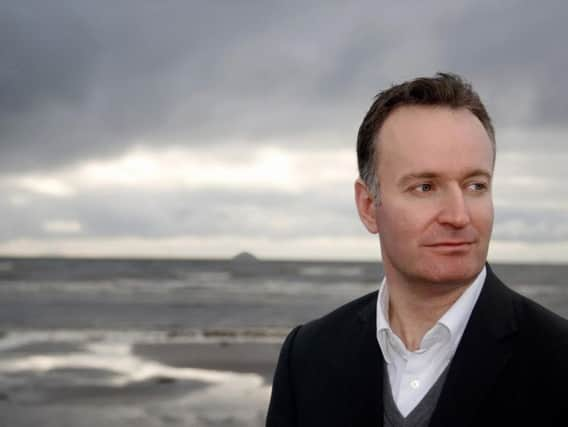Author Andrew O'Hagan: 'Britain has mismanaged itself out of existence'


Speaking at the Edinburgh International book Festival, Andrew O’Hagan, said Britain had “mismanaged itself out of existence” and said Scotland now had to define itself against “small-nation retreatism.”
The Glasgow-born author said Brexit has created a black hole of “impertinence and impossibility” and a chasm between Scotland and England.
Advertisement
Hide AdAdvertisement
Hide AdO’Hagan, who said he turned down numerous interviews on his political views in the run-up to the independence referendum, revealed he had long believed that “England was all the better for having Scotland attached to it, and vice versa.”
Delivering a keynote lecture on the future of Scotland, the writer said he felt it was “a different country” in the immediate wake of the 2014 poll, when he said: “The major parties won the referendum but lost the future.”
He added: “The fight over Brexit would only deepen the chasm. In fact: Brexit has transformed the chasm into a black hole of impertinence and impossibility.
“Now that the picture is clearing, we are left with an image of a belated Little England posing an existential threat to a Scotland that has seen itself for years as European
“After Brexit, it seemed overwhelming to many, and not only in Scotland, that Teresa May’s high-handedness — and lack of political courage — has already compromised Britain’s trading position within Europe.
“Yet Scotland’s vote against that outcome was simply too clear for the schism to be papered over in the old way. Theresa May, by blankly ignoring this, and by seeking again to appease the right wing of her party, a group yet alien to Scotland, supplied an insult to Scotland’s intelligence that it didn’t take much intelligence to see.”
O’Hagan revealed he had sat in the Supreme Court hearings which led to a ruling that Holyrood should not have a say on the triggering of Article 50.
Advertisement
Hide AdAdvertisement
Hide AdHe added: “It was too little commented on at the time how events in the Supreme Court revealed a blundering attitude towards Scotland’s integrity as a political body.
"For those of us who had always supported the idea of the United Kingdom, it was a shattering moment, to see how willing May was to ride rough-shod over Scotland’s discreet authority, enshrined in the Scotland Act of 1998 and located in the Sewell Convention, so that she could hold onto power and please the Brexiteers whom she had formerly opposed.
“It took the full unfolding of the case to see with total clarity that the Union was corrupted. It was the end of another old song, and it was hard now to resist the fact that Britain was being smashed by those who claimed to defend it, and that Scotland would probably be a better country for all that.
“Our moment has arrived. We are where we are. And it may be that the bigger unity, the modern union meshing Scotland with Europe and the world, is now a journey Scotland makes alone.
"Sitting in the Supreme Court, listening to successive lawyers for the Westminster government commanding Scotland to toe the line, I felt the UK’s ruling council suddenly appeared absurd.
“The moral mandate, and the imaginative mandate, more importantly, must lie with Scotland itself, when it comes to Scotland, and Westminster must answer to itself for how it dismantled a project that it claimed to adore.
“Britain has mismanaged itself out of existence, and Scotland may not be the beneficiary, but it can certainly be the escapee, free to succeed or to fail in its own ways. At least we will enjoy the dignity of not endlessly repeating a history that we know has come to an end.”
Advertisement
Hide AdAdvertisement
Hide AdO’Hagan told his sold-out audience that many young people in Scotland felt they had been “sold out” by their own grandparents, adding: “Strangely, it is the younger ones who are more profoundly in touch with Scotland’s intellectual traditions.”
He said: “Scotland used to feel too sorry for itself, and was once addicted to historical injury, but that notion is now as old as the people who said it, and I should know because I’m one.
“Every nation with a rich past has sectarianisms to deal with, but our job is to engage them, not simply by denouncing them, but by supplanting them with bigger thoughts and more exacting passions.
“That is where we are today, where we are in these gardens of the imagination, digging for fresh truth amid too many old prejudices going nowhere.
"Rather than pretend, as various politicians do, that they have all the answers, why not start, in this place, by admitting we are boldly searching. Our perplexity is our situation. Our perplexity is our opportunity. ‘How do I strengthen the better angels of our nature?’
“Barack Obama recently asked. ‘And how do we tamp down our tribal impulses?’ A beginning — I would suggest — might lie in our simply admitting we are in a situation that is new both to our political certainties, our party loyalties, our tribal impulses, and our sense of what was previously admissible.”